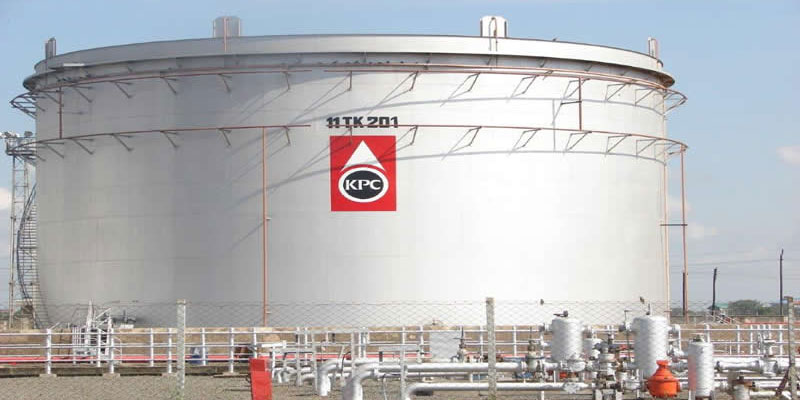News
Parliament Approves Kenya Pipeline Privatization
Treasury estimates the sale could raise Sh100 billion, funds it says are crucial for the 2025/26 budget, infrastructure projects, and reducing public borrowing.

Nairobi, Kenya – In a move that could redefine the country’s control over one of its most strategic state corporations, Parliament on Wednesday approved a sessional paper authorising the privatisation of the Kenya Pipeline Company (KPC).
Under the plan, the government will sell 65 percent of its stake through an Initial Public Offering (IPO) at the Nairobi Securities Exchange, retaining at least 35 percent ownership.
Treasury estimates the sale could raise Sh100 billion, funds it says are crucial for the 2025/26 budget, infrastructure projects, and reducing public borrowing.
Majority Leader Kimani Ichung’wah, who seconded the motion, defended the plan as both financially sound and secure for the State.
“This means we will still maintain control, as no single investor will be able to take up the entire 65 percent. I invite all Kenyans to start saving in preparation to buy shares in this company,” he said on the floor of the House.
But the approval has sparked outrage among opposition MPs, who accused the Executive of orchestrating a legislative ambush.
Deputy Minority Leader Robert Mbui said the sessional paper was not on the original Order Paper and was instead “sneaked in” via a Supplementary Order Paper tabled at 3:30 p.m. on the same day.
“The House has been compromised. This was an ambush,” Mbui charged, vowing to challenge the decision in court. “We are asking Kenyans to move to court even as the united opposition prepares to do the same.”
Billions in Pending Liabilities
While the Treasury has marketed the IPO as a landmark opportunity, the Kenya Pipeline Company comes with heavy baggage. The Supplementary Order Paper lists Sh5.75 billion in unsettled liabilities that must be addressed before the privatisation goes forward.
These include Sh3.8 billion in compensation claims by Makueni County residents over historical grievances linked to pipeline operations, Sh400 million lost in the stalled Mzima pipeline project, a Sh485 million garnishee order in favour of Zakhem International over the Line V project, and Sh192.6 million tied to a disputed takeover of the LPG facility by Asharami Synergy.
Analysts warn that unless these disputes are settled transparently, the IPO could be undermined, with investors reluctant to buy into a company weighed down by lawsuits.
Promise vs. Risk
For government, the sale represents a lifeline. Kenya Pipeline is a cash-generating monopoly that transports and stores petroleum products, and officials hope its IPO will emulate the success of Safaricom’s 2008 listing, which broadened shareholding and energised the capital markets.
But critics see echoes of Kenya Airways, another privatisation hailed in its time but later crippled by debt and mismanagement, leaving taxpayers to foot the bill.
“The pipelines are not just pipes; they are the veins through which the economy’s lifeblood — fuel — flows,” one opposition MP told The Informant. “Handing them to profit-driven shareholders undermines sovereignty and could raise fuel prices for Kenyans.”
For ordinary citizens, the stakes are high. If privatisation drives efficiency, it could lower operating costs and ensure stable fuel supply. But if investors push for higher dividends, consumers may feel the pinch at the pump. For retail investors, the IPO offers a rare chance to own a piece of Kenya’s energy backbone — though history suggests institutional investors may dominate the offering.
Political Battle Brewing
The opposition’s vow to challenge the sale in court sets up another test for President William Ruto’s controversial privatisation agenda. The judiciary is already hearing petitions against the proposed sale of the Kenyatta International Convention Centre and other parastatals, raising the possibility that KPC’s IPO could be delayed or blocked.
The Kenya Pipeline Company, established in 1973 and operational since 1978, has long been on the privatisation programme list first gazetted in 2009. Successive governments have shied away from executing the sale — until now.
As the government celebrates what it calls a bold step towards efficiency and resource mobilisation, and the opposition warns of a reckless surrender of sovereignty, the privatisation of Kenya Pipeline is shaping up as one of the most consequential and contentious economic decisions of the Ruto administration.
For investors, it may be the opportunity of a generation.
For ordinary Kenyans, it could determine not just how much they pay for fuel — but who controls the arteries of the nation’s energy security.
Kenya Insights allows guest blogging, if you want to be published on Kenya’s most authoritative and accurate blog, have an expose, news TIPS, story angles, human interest stories, drop us an email on [email protected] or via Telegram
-

 Grapevine4 days ago
Grapevine4 days agoAlleged Male Lover Claims His Life Is in Danger, Leaks Screenshots and Private Videos Linking SportPesa CEO Ronald Karauri
-

 Lifestyle7 days ago
Lifestyle7 days agoThe General’s Fall: From Barracks To Bankruptcy As Illness Ravages Karangi’s Memory And Empire
-

 Americas2 weeks ago
Americas2 weeks agoEpstein Files: Bill Clinton and George Bush Accused Of Raping A Boy In A Yacht Of ‘Ritualistic Sacrifice’
-

 Business2 weeks ago
Business2 weeks agoCooking Fuel Firm Koko Collapses After Govt Blocks Sh23bn Carbon Deal
-

 Business2 weeks ago
Business2 weeks agoABSA BANK IN CRISIS: How Internal Rot and Client Betrayals Have Exposed Kenya’s Banking Giant
-

 Investigations1 week ago
Investigations1 week agoEpstein Files: Sultan bin Sulayem Bragged on His Closeness to President Uhuru Then His Firm DP World Controversially Won Port Construction in Kenya, Tanzania
-

 News1 week ago
News1 week agoAUDIT EXPOSES INEQUALITY IN STAREHE SCHOOLS: PARENTS BLED DRY AS FEES HIT Sh300,000 AGAINST Sh67,244 CAP
-

 Business1 week ago
Business1 week agoKRA Can Now Tax Unexplained Bank Deposits













